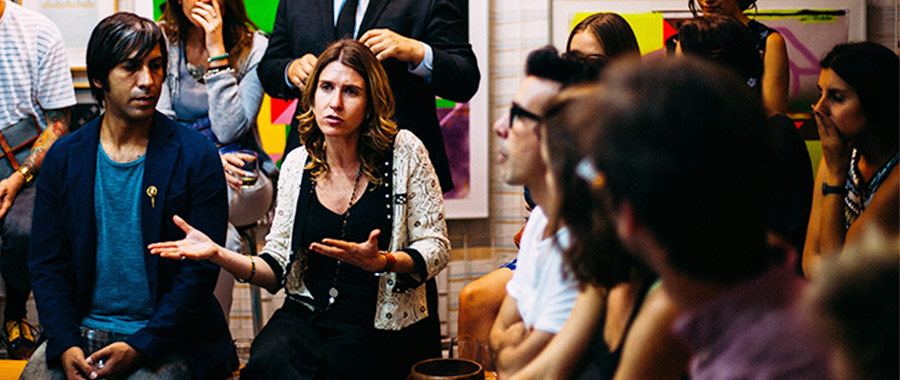In the context of Bahá’í teachings, consultation occupies a pivotal role, epitomizing an approach to decision-making that transcends mere discussion. It embodies a profound respect for the diversity of opinions and the innate value of each individual’s perspective. This practice, deeply embedded in Bahá’í culture, encourages open dialogue and fosters a communal environment where every participant can contribute their insights for collective consideration. The emphasis on consultation reveals multifaceted dimensions of social interaction, highlighting both theoretical foundations and practical implications.
One of the primary reasons for the elevation of consultation within Bahá’í communities lies in its roots in the concept of unity. Unity, a core principle of the Bahá’í faith, extends beyond mere social cohesion; it encapsulates a holistic vision of humanity where differences are not only acknowledged but celebrated. In this light, consultation becomes an instrument through which divergent viewpoints can converge to create a more comprehensive understanding of issues. Each opinion matters not just for its content but as a reflection of the myriad experiences that shape individual perspectives. The amalgamation of these experiences fosters a richer, more nuanced discernment of truth.
Moreover, the act of consultation rests upon the recognition of humanity’s collective intellectual capacity. By inviting every individual to express their views, it acknowledges that wisdom is not confined to a select few; rather, it emerges through collaborative engagement. This egalitarian principle is instrumental in dismantling hierarchical barriers that often inhibit open dialogue. When participants perceive that their contributions are valued equally, they are more likely to engage authentically, resulting in a vibrant exchange of ideas. This democratic ethos engenders a sense of belonging, cultivating an environment conducive to innovation and problem-solving.
Consultation also functions as a counterbalance to the pitfalls of individualism prevalent in many modern societies. While personal opinions are crucial, they can sometimes devolve into polarizing factions. In Bahá’í consultation, the focus shifts from asserting individual opinions to enriching the collective understanding. This shared orientation demands humility, as participants must surrender their personal predilections for the sake of a unified outcome. Such a shift not only promotes selflessness but cultivates an atmosphere of mutual respect. It encourages participants to approach discussions with a readiness to listen, understand, and adapt their views based on the insights of others.
The significance of this process extends beyond the immediate context of consultation sessions. It engenders an enduring legacy of responsible citizenship, where individuals become attuned to the importance of collective decision-making in broader societal frameworks. In a world increasingly characterized by division and discord, the Bahá’í practice of consultation serves as a template for fostering understanding across cultural and ideological divides. It underscores the belief that through dialogue, empathy, and shared intent, communities can navigate even the most complex challenges.
Furthermore, it is essential to note that consultation is sustained by a framework of principles that inform its practice. Key among these is the commitment to truth-seeking. Participants are encouraged to approach discussions with the intent to discover truth rather than to champion personal agendas. This foundational ethos ensures that the deliberative process remains focused, elevating the quality of discourse. Truth-seeking transforms consultation into an intellectual endeavor, wherein opinions are scrutinized and evaluated not merely for their popularity, but for their merit and alignment with shared values.
An integral aspect of Bahá’í consultation is the emphasis on consensus-building. Unlike traditional decision-making methods that may result in a winner-takes-all dynamic, Bahá’í consultation aspires to achieve agreement through shared understanding. This process often involves navigating disagreement constructively, allowing participants to articulate their differing viewpoints while collectively pursuing a resolution that reflects the collective will of the group. Such an approach not only fosters a profound sense of ownership over decisions but also nurtures relationships among participants, fortifying bonds within the community.
The efficacy of consultation in the Bahá’í context also highlights an intrinsic educational component, where members engage in a continuous learning process. Each consultation session becomes an opportunity for personal growth, as individuals reflect on their biases, broaden their perspectives, and refine their communication skills. This iterative process not only sharpens individual judgment but cultivates a culture of learning within communities. It reinforces the idea that consultation is not merely a procedural necessity but a dynamic, transformative experience that shapes not only decisions but also individuals.
Moreover, it is important to recognize the empathetic dimension of consultation. Bahá’í teachings encourage participants to engage with compassion, recognizing the emotions and perspectives of others. This empathetic engagement fosters a supportive atmosphere where individuals feel safe to express their opinions. When participants sense that their emotional realities are honored, the quality of dialogue improves significantly. Empathy becomes the glue that holds conversations together, leading to rich interactions where all voices resonate.
In conclusion, the Bahá’í practice of consultation stands as a beacon of hope in an increasingly fragmented world. By valuing each opinion, it nurtures unity, cultivates humility, and reinforces the imperative of collective wisdom. This approach not only enhances personal growth but also demonstrates a profound commitment to fostering understanding, empathy, and cooperative problem-solving. It serves as a compelling model for any community aspiring to transcend division and promote harmony, reminding us all that every opinion indeed matters, not just in consultation, but in the tapestry of human experience.
